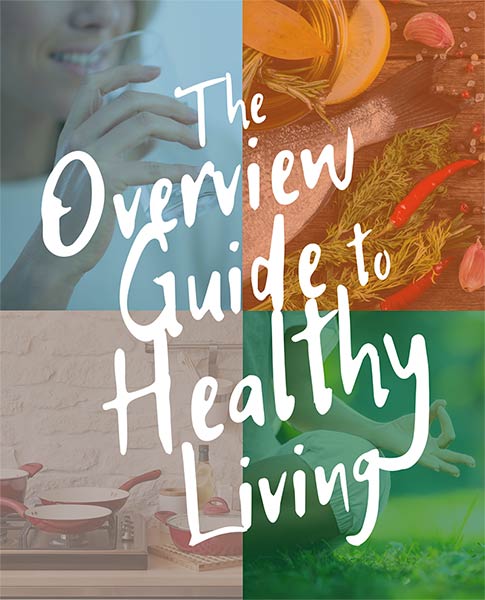
Nutritional Therapy For Hashimoto’s
Hashimoto thyroiditis is a chronic autoimmune disorder caused by an interaction between genetic factors and environmental triggers. The integrative approach to autoimmune thyroiditis is a multifaceted approach that focuses on diet, lifestyle, and individualized supplementation. The practitioner should also aim at discovering and dealing with the environmental triggers that started the autoantibody attack against the thyroid (Liontiris et al., 2017).
A clinical trial on 34 women showed that a strict gluten-free diet followed for 6 months lowered thyroid antibodies, improved vitamin D levels, and improved the quality of thyroid tissue (Krysiak et al., 2019).
A review published in 2020 in the Annals of Agriculture and Environmental Medicine (AAEM) shows that scientists agree that there are numerous environmental, dietary, and lifestyle factors that exacerbate Hashimoto thyroiditis: including stress, environmental toxins, poor detoxification, gut dysbiosis, leaky gut (Cayres et al., 2021), undernutrition and malnutrition (Ihnatowicz et al., 2020).
Can Inflammation Reduction Help Ease the Symptom’s of Hashimoto’s Disease?
The dietary intervention aims at reducing inflammation and modulating the immune response, and it focuses on a nutrient-dense diet that is gluten and dairy-free. Research shows that consumption of dairy foods negatively interacts with the thyroid medication levothyroxine (Ihnatowicz et al., 2020). Regarding gluten, research shows the negative effects that gliadin has on thyroid antibodies as well as the high prevalence of undiagnosed celiac disease in patients suffering from autoimmune thyroiditis. A study published in 2017 concluded that in patients with Hashimoto’s high levels of anti-tissue transglutaminase and IgA anti-gliadin antibodies are related to antithyroid antibodies. These findings show that dietary intervention in Hashimoto’s patients is crucial in reducing the autoimmune load and preventing the occurrence of celiac disease (Riseh et al., 2017).
Research shows that Hashimoto’s patients share frequent nutrition deficiencies: zinc, selenium, magnesium, potassium, iodine, copper, vitamin A, vitamin C, vitamin D, and B vitamins. Patients suffering from Hashimoto’s also benefit from adequate levels of high-quality protein and omega-3 fatty acids (Ihnatowicz et al., 2020).
Diet and Infflamation Reduction
In my practice, I recommend the paleo autoimmune diet (AIP) to my clients suffering from Hashimoto’s thyroiditis (Abbott et al., 2019). This dietary intervention focuses on nutrient-dense foods; it removes foods that cause inflammation (for example, grains, soy, and peanuts), but it also removes otherwise healthy foods, like tomatoes, that contain compounds known to stimulate the immune system.
Paleo Autoimmune Diet Food List

- Grass-fed meals, organic poultry, wild-caught fish, pastured pork, and wild game
- Vegetables: all except nightshades
- Sweet potatoes
- Fruit (limit to 1-2 servings a day to keep fructose consumption to no more than 25gr daily)
- Honey and maple syrup in small quantity
- Fermented foods: sauerkraut, kombucha, coconut water kefir
- Fresh non-seed herbs
- Green tea and non-seed herbal teas
- Vinegar
- Olive, coconut, and avocado oil (plus fats naturally occurring on meat and fish)
- Bone broths
Foods not allowed on AIP
- Grains
- Dairy
- Eggs
- Nuts
- Nightshades
- All sugars and non-nutritive sweeteners, except for honey and maple syrup
- Processed oils
- Alcohol
- Coffee
- Chocolate
- Processed foods
- Foods the patient is sensitive or allergic to
Lifestyle Intervention For Hashimoto’s
Smoking is a common risk factor in the development of autoimmune thyroiditis, therefore, smoking cessation is recommended (Köhling et al., 2017). Stress is another common risk factor (Köhling et al., 2017). Stress-management techniques like guided meditation, breathing exercises, yoga, massage, and cognitive-behavioral strategies can help lower stress response (Carlson et al., 2019).
While there are no studies regarding the impact of sleep quality on autoimmune thyroiditis, we know that poor sleep quality negatively influences stress response (Blaxton et al., 2017). For this reason, sleep hygiene is part of my autoimmune thyroiditis recovery program.
In recent years, research has investigated the role of the microbiota in autoimmune disease. H. Pylori and gut dysbiosis have been linked to autoimmune thyroiditis (Köhling et al., 2017). Therefore, a holistic approach to Hashimoto’s must include diagnosis and treatment of gut ecology imbalance.
References
Abbott, R. D., Sadowski, A., & Alt, A. G. (2019). Efficacy of the Autoimmune Protocol Diet as Part of a Multi-disciplinary, Supported Lifestyle Intervention for Hashimoto’s Thyroiditis. Cureus, 11(4), e4556. https://doi.org/10.7759/cureus.4556
Blaxton, J. M., Bergeman, C. S., Whitehead, B. R., Braun, M. E., & Payne, J. D. (2017). Relationships Among Nightly Sleep Quality, Daily Stress, and Daily Affect. The journals of gerontology. Series B, Psychological sciences and social sciences, 72(3), 363–372. https://doi.org/10.1093/geronb/gbv060
Carlson, L. E., Toivonen, K., & Subnis, U. (2019). Integrative Approaches to Stress Management. Cancer journal (Sudbury, Mass.), 25(5), 329–336. https://doi.org/10.1097/PPO.0000000000000395
Cayres, L., de Salis, L., Rodrigues, G., Lengert, A., Biondi, A., Sargentini, L., Brisotti, J. L., Gomes, E., & de Oliveira, G. (2021). Detection of Alterations in the Gut Microbiota and Intestinal Permeability in Patients With Hashimoto Thyroiditis. Frontiers in immunology, 12, 579140. https://doi.org/10.3389/fimmu.2021.579140
Hadizadeh Riseh, S., Abbasalizad Farhang, M., Mobasseri, M., & Asghari Jafarabadi, M. (2017). THE RELATIONSHIP BETWEEN THYROID HORMONES, ANTITHYROID ANTIBODIES, ANTI-TISSUE TRANSGLUTAMINASE AND ANTI-GLIADIN ANTIBODIES IN PATIENTS WITH HASHIMOTO’S THYROIDITIS. Acta endocrinologica (Bucharest, Romania : 2005), 13(2), 174–179. https://doi.org/10.4183/aeb.2017.174
Ihnatowicz, P., Drywień, M., Wątor, P., & Wojsiat, J. (2020). The importance of nutritional factors and dietary management of Hashimoto’s thyroiditis. Annals of agricultural and environmental medicine : AAEM, 27(2), 184–193. https://doi.org/10.26444/aaem/112331
Köhling, H. L., Plummer, S. F., Marchesi, J. R., Davidge, K. S., & Ludgate, M. (2017). The microbiota and autoimmunity: Their role in thyroid autoimmune diseases. Clinical immunology (Orlando, Fla.), 183, 63–74. https://doi.org/10.1016/j.clim.2017.07.001
Krysiak, R., Szkróbka, W., & Okopień, B. (2019). The Effect of Gluten-Free Diet on Thyroid Autoimmunity in Drug-Naïve Women with Hashimoto’s Thyroiditis: A Pilot Study. Experimental and clinical endocrinology & diabetes : official journal, German Society of Endocrinology [and] German Diabetes Association, 127(7), 417–422. https://doi.org/10.1055/a-0653-7108
Liontiris, M. I., & Mazokopakis, E. E. (2017). A concise review of Hashimoto thyroiditis (HT) and the importance of iodine, selenium, vitamin D and gluten on the autoimmunity and dietary management of HT patients.Points that need more investigation. Hellenic journal of nuclear medicine, 20(1), 51–56. https://doi.org/10.1967/s002449910507
The Integrative Treatment of Thyroid Conditions. (2021). Natural Medicine Journal. https://www.naturalmedicinejournal.com/journal/2017-06/integrative-treatment-thyroid-conditions
